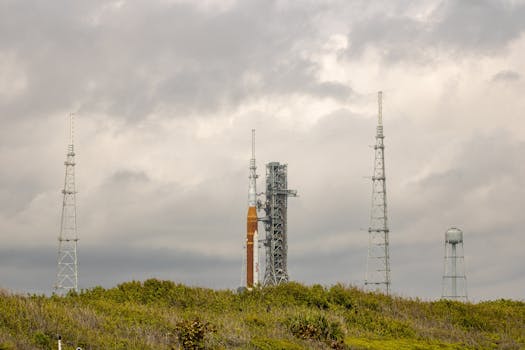Satellite Launch Missions and Their Impact on Space Exploration: The Future of Space Travel
Satellite launch missions have revolutionized the field of space exploration, enabling us to study the universe, communicate with each other, and navigate our way around the globe. In this article, we will explore the impact of satellite launch missions on space exploration and what the future holds for space travel.

Satellite Launch Missions and Their Impact on Space Exploration: The Future of Space Travel
Satellite launch missions have become an essential part of space exploration, allowing us to send satellites into orbit around the Earth, to other planets, and even into deep space. Satellite launch missions have revolutionized the field of space exploration, enabling us to study the universe, communicate with each other, and navigate our way around the globe. In this article, we will explore the impact of satellite launch missions on space exploration and what the future holds for space travel.
History of Satellite Launch Missions
The first satellite, Sputnik 1, was launched by the Soviet Union in 1957, marking the beginning of the space age. Since then, numerous satellite launch missions have been conducted by space agencies and private companies around the world. The United States, Russia, Europe, China, and India are among the top countries with the most satellite launch missions. These missions have enabled us to explore the Earth’s orbit, the Moon, the Sun, and other planets in our solar system.
Types of Satellite Launch Missions
There are several types of satellite launch missions, including crewed missions, uncrewed missions, and commercial missions. Crewed missions involve sending astronauts into space, while uncrewed missions involve sending robotic spacecraft. Commercial missions involve launching satellites for communication, navigation, and other purposes. Some of the most notable satellite launch missions include the Apollo 11 mission, which landed the first humans on the Moon, and the Voyager 1 mission, which has traveled farther than any other human-made object.
Impact of Satellite Launch Missions on Space Exploration
Satellite launch missions have had a significant impact on space exploration, enabling us to study the universe, communicate with each other, and navigate our way around the globe. Satellites have been used for a variety of purposes, including weather forecasting, navigation, communication, and scientific research. They have also enabled us to explore other planets and celestial bodies, such as Mars, Jupiter, and the Moon. The data collected from these missions has helped us to better understand the universe and our place in it.
Future of Satellite Launch Missions
The future of satellite launch missions looks bright, with numerous planned missions to the Moon, Mars, and other destinations in our solar system. Private companies such as SpaceX and Blue Origin are leading the charge, with plans to send humans to the Moon and Mars in the near future. Space agencies such as NASA and the European Space Agency are also planning new missions, including the Artemis program, which aims to return humans to the Moon by 2024. With the advancement of technology and the increasing interest in space exploration, we can expect to see many more satellite launch missions in the future.
Conclusion
In conclusion, satellite launch missions have had a profound impact on space exploration, enabling us to study the universe, communicate with each other, and navigate our way around the globe. With numerous planned missions to the Moon, Mars, and other destinations in our solar system, the future of space travel looks bright. As technology continues to advance and interest in space exploration grows, we can expect to see many more satellite launch missions in the future, pushing the boundaries of what is possible and expanding our understanding of the universe.




